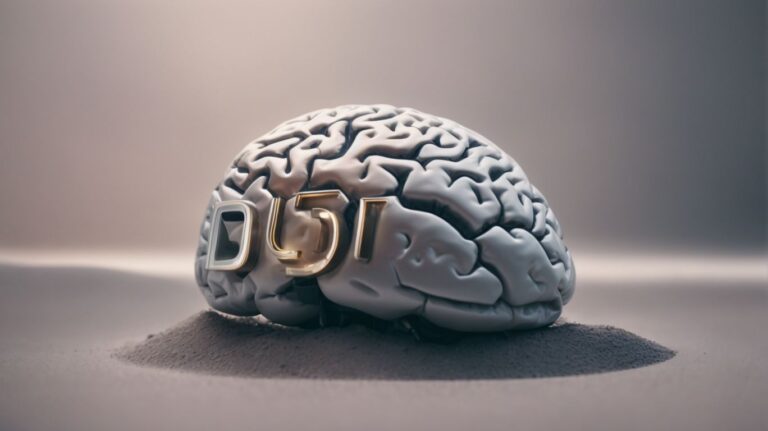If you’ve ever wondered about the complexities of the human mind and the various mental health conditions that can affect it, then you’re in the right place.
In this article, we’ll be exploring the fascinating field of abnormal psychology, which focuses on understanding and treating mental disorders. From mood and anxiety disorders to psychotic and personality disorders, we’ll delve into the different types of mental health conditions, their potential causes, diagnostic methods, and available treatment options.
So, let’s dive in and learn more about this important branch of psychology.
Contents
- 1 Key Takeaways:
- 2 What Is Abnormal Psychology?
- 3 What Are The Different Types of Mental Disorders?
- 4 What Causes Mental Disorders?
- 5 How Are Mental Disorders Diagnosed?
- 6 What Are The Treatment Options for Mental Disorders?
- 7 Frequently Asked Questions
- 7.1 What is the branch of psychology dealing with mental disorders?
- 7.2 What types of mental disorders does this branch of psychology cover?
- 7.3 What is the main goal of understanding this branch of psychology?
- 7.4 How do psychologists diagnose mental disorders?
- 7.5 What are some common treatment approaches used in this branch of psychology?
- 7.6 Why is it important to understand this branch of psychology?
Key Takeaways:
- Abnormal psychology is a branch that focuses on understanding and treating mental disorders.
- There are various types of mental disorders, including mood, anxiety, psychotic, personality, eating, substance-related, and trauma/stress-related disorders.
- Mental disorders can be caused by a combination of biological, environmental, and psychological factors.
What Is Abnormal Psychology?
Abnormal psychology is a branch of psychology that focuses on the study of a typical behaviour, cognitive processes, and emotional disturbances, drawing insights from clinical psychology, cognitive psychology, social psychology, and personality psychology.
This specialized field examines the various factors contributing to abnormal behavior, such as genetic predispositions, environmental influences, and social interactions.
Clinical psychology plays a pivotal role in diagnosing and treating mental disorders, while cognitive psychology offers valuable insights into the thought processes associated with abnormal behavior.
Social psychology sheds light on how social dynamics and societal norms impact individuals’ behavior, and personality psychology delves into the unique traits and characteristics that may predispose individuals to atypical patterns of thought and behavior.
What Are The Different Types of Mental Disorders?
Mental disorders encompass a broad spectrum of psychological conditions that impact an individual’s behavioral, cognitive, and emotional well-being, drawing insights from various fields of psychology such as clinical psychology, biological psychology, and personality psychology.
This wide range of mental disorders can significantly affect how individuals perceive and interact with the world.
For example, anxiety disorders can lead to persistent feelings of worry and fear, impacting daily functioning. Similarly, mood disorders like depression can influence one’s emotional state, often leading to a sense of profound sadness and loss of interest in previously enjoyable activities.
Psychotic disorders such as schizophrenia can distort a person’s thoughts, perceptions, and behaviors, creating challenges in communication and social interactions. Neurodevelopmental disorders like autism spectrum disorder can impact cognitive development and social skills, contributing to unique patterns of behavior and communication.
Mood Disorders
Mood disorders encompass a range of psychological conditions characterized by disturbances in a person’s emotional state, including clinical depression and bipolar disorder, and are studied within the domains of clinical psychology and biological psychology.
These conditions can significantly impact an individual’s daily functioning, relationships, and overall quality of life. Symptoms of mood disorders can manifest in various ways, such as persistent feelings of sadness or hopelessness, sudden changes in energy levels, difficulty concentrating, and extreme mood swings.
Individuals with these disorders may experience disruptions in their sleep patterns, appetite, and cognitive abilities. The impact of mood disorders extends beyond the individual, affecting their families, friends, and colleagues as well.
Understanding the complexities of these conditions is crucial for effective diagnosis and treatment. It involves a comprehensive assessment of symptoms, medical history, and psychological evaluation to develop personalized interventions and management strategies.
Anxiety Disorders
Anxiety disorders encompass a range of psychological conditions characterized by persistent feelings of fear and worry, drawing insights from the domains of clinical psychology, cognitive psychology, and social psychology.
These disorders can manifest in various forms, including generalized anxiety disorder (GAD), social anxiety disorder, panic disorder, and specific phobias.
Individuals experiencing anxiety disorders often struggle with intrusive thoughts, physical tension, restlessness, and difficulty concentrating. Furthermore, the impact of these disorders extends beyond the individual, affecting interpersonal relationships, work performance, and overall quality of life.
It’s imperative for those affected to seek appropriate support and treatment, which might include therapy, medication, and lifestyle modifications.
Psychotic Disorders
Psychotic disorders encompass severe mental conditions that significantly impact an individual’s thoughts, emotions, and behavior, studied within clinical psychology, biological psychology, and cognitive psychology.
These disorders often present with symptoms such as hallucinations, delusions, disorganized thinking, and motor disturbances.
Hallucinations involve perceiving things that are not present, while delusions are false beliefs held despite evidence to the contrary. Disorganized thinking can manifest as difficulty in organizing thoughts or expressing oneself coherently.
Individuals with psychotic disorders may exhibit abnormal motor behavior, such as catatonia. The implications of these disorders extend to social and occupational dysfunction, as well as increased risk of self-harm and suicide.
Personality Disorders
Personality disorders encompass enduring patterns of behavior, cognition, and inner experience that deviate from societal norms, studied within the domain of clinical psychology and personality psychology.
Personality disorders commonly emerge during adolescence and continue into adulthood, resulting in considerable distress and hindering personal, social, and occupational functioning. A lack of self-awareness in these individuals can make seeking help or following treatment difficult.
Furthermore, the effects of these disorders extend beyond the individual, impacting relationships, families, and communities. Successfully managing these disorders requires a comprehensive approach that addresses biological, psychological, and social factors.
Eating Disorders
Eating disorders encompass disruptive eating behaviors and thoughts that significantly impact an individual’s physical and mental health, studied within clinical psychology and biological psychology.
These disorders include anorexia nervosa, bulimia nervosa, and binge-eating disorder, each characterized by specific patterns of food intake and associated emotional and cognitive challenges.
Manifestations may range from severe restriction of food intake to episodes of overeating followed by compensatory behaviors. The implications of eating disorders extend beyond the individual, affecting relationships, social functioning, and overall well-being.
Treatment often involves a multidisciplinary approach, incorporating therapy, nutritional counseling, and medical intervention to address the complex interplay of biological, psychological, and social factors.
Substance-Related Disorders
Substance-related disorders encompass addictive behaviors and physiological effects resulting from substance abuse, drawing insights from clinical psychology, biological psychology, and cognitive psychology.
In individuals with substance-related disorders, the excessive and problematic use of substances such as alcohol, drugs, or prescription medications can lead to severe disruptions in daily functioning, relationships, and overall well-being. The impact extends beyond the individual, affecting families, communities, and society at large.
Treatment for substance-related disorders often involves a multidisciplinary approach, incorporating medical interventions, counseling, support groups, and behavioral therapies to address the complex nature of addiction and promote recovery.
By understanding the interplay of psychological, biological, and environmental factors, effective interventions can be tailored to meet the specific needs of those struggling with these disorders.
Trauma and Stressor-Related Disorders
Trauma and stressor-related disorders encompass psychological responses to traumatic or stressful events, studied within the domains of clinical psychology, cognitive psychology, and social psychology.
These disorders can arise from various experiences, such as exposure to violence, natural disasters, or the loss of a loved one, leading to significant distress and impairment in daily functioning.
Individuals with trauma and stressor-related disorders often exhibit symptoms like intrusive thoughts, emotional numbing, and hypervigilance, impacting their overall well-being.
Therapeutic approaches for addressing these disorders include trauma-focused cognitive behavioral therapy, eye movement desensitization and reprocessing, and pharmacotherapy, aimed at reducing symptoms and fostering resilience.
Understanding the psychological impact of trauma is crucial for effective intervention and support in the context of trauma and stressor-related disorders.
What Causes Mental Disorders?
The causes of mental disorders are multifaceted, encompassing biological, environmental, and psychological factors that contribute to the onset and development of various psychological conditions.
Biological factors such as genetic predisposition, brain chemistry, and neurological functioning play a crucial role in the development of mental disorders.
Environmental influences, such as childhood trauma, abuse, neglect, and socio-economic disparities, can also significantly impact an individual’s mental well-being.
Psychological factors, including stress, coping mechanisms, and personality traits, contribute to the manifestation of mental disorders.
The complex interplay of these factors necessitates a comprehensive approach to understanding and addressing mental health issues.
Biological Factors
Biological factors play a significant role in the development and expression of mental disorders, involving genetic predispositions, neurobiological mechanisms, and physiological imbalances.
Genetic predispositions can influence an individual’s susceptibility to certain mental disorders, as inherited traits and variations in genes can contribute to the manifestation of specific conditions.
Neurobiological mechanisms encompass the intricate pathways and functionalities of the brain, impacting an individual’s cognitive, emotional, and behavioral responses. Physiological imbalances, such as neurotransmitter dysregulation or hormonal irregularities, can disrupt the delicate equilibrium within the body, potentially leading to the onset or exacerbation of mental health concerns.
Environmental Factors
Environmental factors encompass a wide range of social and contextual influences that contribute to the development and exacerbation of mental disorders, including early childhood experiences, trauma, and social stressors.
These factors play a significant role in shaping an individual’s psychological well-being. Social influences, such as discrimination, bullying, and societal pressures, can have a profound impact on one’s mental health.
Furthermore, childhood experiences and trauma can leave lasting imprints, increasing vulnerability to various disorders in adulthood. Understanding the interplay between these environmental factors is crucial in addressing mental health challenges effectively.
It highlights the importance of creating supportive and nurturing environments to mitigate the risk of mental disorders and promote resilience.
Psychological Factors
Psychological factors contribute to the onset and maintenance of mental disorders, encompassing cognitive processes, personality traits, and maladaptive coping mechanisms that influence an individual’s psychological well-being.
These psychological factors play a significant role in shaping an individual’s mental health.
Cognitive processes such as perception, reasoning, and problem-solving contribute to how individuals interpret and process information, impacting their emotional and behavioral responses.
Personality traits, including neuroticism, extraversion, and conscientiousness, can influence vulnerability to certain mental disorders.
Maladaptive coping mechanisms, such as avoidance or self-medicating, can perpetuate or exacerbate mental health struggles.
How Are Mental Disorders Diagnosed?
The diagnosis of mental disorders involves comprehensive assessments, including clinical interviews, psychological testing, and physical examinations, to evaluate an individual’s psychological and physiological well-being.
During a clinical interview, a trained mental health professional engages in a structured conversation with the individual to gather information about their symptoms, thoughts, feelings, and behaviors. These interviews provide valuable insights into the person’s mental state, history, and current challenges.
Moreover, psychological tests, such as personality assessments and cognitive assessments, are administered to measure specific aspects of a person’s mental health, including cognitive abilities, emotional functioning, and personality traits. These tests aid in identifying potential mental health issues and inform treatment planning.
In addition, physical examinations assess an individual’s overall health, ruling out any underlying medical conditions that may contribute to the observed symptoms. This holistic approach ensures that the diagnostic process considers both psychological and physiological factors in evaluating the individual’s well-being.
Clinical Interviews
Clinical interviews serve as a fundamental method for assessing and diagnosing mental disorders, allowing mental health professionals to gather comprehensive information about an individual’s psychological well-being and symptoms.
These interviews provide an opportunity for clinicians to establish rapport with their patients, understand their unique experiences, and explore the underlying factors contributing to their distress.
By engaging in open-ended conversations, clinicians can observe nuances in behavior, emotions, and thought patterns that contribute to an accurate diagnosis.
The structured nature of clinical interviews ensures that the diagnostic process follows a systematic approach, enabling professionals to identify specific criteria outlined in diagnostic manuals such as the DSM-5. They help in distinguishing between different mental disorders, considering the overlapping symptoms and intricate manifestations.
Psychological Tests
Psychological tests represent essential assessment tools for diagnosing mental disorders, providing standardized measures to evaluate an individual’s cognitive abilities, emotional state, and behavioral tendencies.
These tests play a crucial role in identifying various mental health conditions, such as depression, anxiety disorders, schizophrenia, and personality disorders.
By using objective measures, psychologists and psychiatrists can gather valuable insights into a patient’s psychological functioning, aiding in accurate diagnosis and treatment planning.
Psychological tests help in monitoring the progress of individuals undergoing therapy and medication, ensuring effective management of their mental health.
Physical Examinations
Physical examinations are integral to the diagnostic process for mental disorders, enabling medical professionals to assess an individual’s physiological well-being and identify potential health-related factors contributing to psychological symptoms.
During physical examinations, healthcare practitioners evaluate various aspects of a patient’s physical health, including neurological function, vital signs, and general appearance. These assessments aid in ruling out physical conditions that may mimic or exacerbate mental health conditions, such as neurological disorders, hormonal imbalances, or medication side effects.
Physical examinations provide valuable information about a patient’s overall health, potentially uncovering underlying physical illnesses that could influence their mental well-being.
What Are The Treatment Options for Mental Disorders?
The treatment options for mental disorders encompass a diverse range of interventions, including medications, therapy, and lifestyle modifications, tailored to address an individual’s psychological well-being and promote recovery.
Medications for mental disorders are prescribed based on the specific diagnosis and symptoms, with options including antidepressants, anti-anxiety drugs, mood stabilizers, and antipsychotics.
Therapy, such as cognitive-behavioral therapy (CBT), dialectical behavior therapy (DBT), and interpersonal therapy, provides essential support and coping strategies. Lifestyle modifications such as regular exercise, healthy diet, stress management, and adequate sleep also play a crucial role in managing mental health.
The combination of these approaches can lead to significant improvements and a better overall quality of life for individuals dealing with mental disorders.
Medications
Medications represent a primary pharmacological approach in the treatment of mental disorders, aiming to alleviate symptoms, regulate neurotransmitter function, and restore psychological well-being.
Pharmacological interventions for mental disorders involve a wide spectrum of medications, such as antidepressants, antipsychotics, anxiolytics, and mood stabilizers. These medications act on various neurotransmitter systems in the brain, modulating their activity to ameliorate symptoms.
For instance, selective serotonin reuptake inhibitors (SSRIs) target serotonin pathways to alleviate depressive symptoms, while antipsychotics regulate dopamine levels to manage psychotic manifestations.
Through their mechanisms of action, medications strive to restore the delicate balance of neurotransmitter function, ameliorating distressing symptoms and enhancing mental well-being.
Therapy
Therapy, encompassing psychotherapy and counseling, represents a pivotal intervention for addressing mental disorders, providing individuals with psychological support, coping strategies, and behavior modification techniques.
Psychotherapy plays a fundamental role in diving into the roots of mental health issues, exploring past experiences, emotions, and thought patterns through the guidance of a trained therapist.
This approach aims to uncover and address underlying psychological conflicts, traumas, and maladaptive behaviors. On the other hand, counseling focuses on providing individuals with practical guidance, problem-solving techniques, and emotional support to navigate through challenging life situations.
Through therapeutic interventions, individuals can gradually regain a sense of control over their lives, develop healthy coping mechanisms, and strengthen their resilience.
Lifestyle Changes
Lifestyle changes form an integral component of a holistic approach to managing mental disorders, encompassing initiatives to promote overall wellness, stress reduction, and healthy behavioral patterns.
By embracing these adjustments, individuals can experience a positive impact on their mental health.
Exercise and physical activity play a crucial role in releasing endorphins and reducing symptoms of anxiety and depression.
Moreover, nutrition is closely linked to mental health, with studies indicating the influence of a balanced diet on cognitive function and mood stabilization.
Establishing healthy sleep patterns can significantly enhance overall mental well-being.
Embracing activities like meditation, mindfulness, and relaxation techniques can also contribute to reducing stress and promoting mental clarity.
Frequently Asked Questions
What is the branch of psychology dealing with mental disorders?
The branch of psychology dealing with mental disorders is known as abnormal psychology. It focuses on the study, diagnosis, and treatment of psychological disorders and mental illnesses.
What types of mental disorders does this branch of psychology cover?
This branch of psychology covers a wide range of mental disorders, including anxiety disorders, mood disorders, personality disorders, psychotic disorders, and more.
What is the main goal of understanding this branch of psychology?
The main goal of understanding the branch of psychology dealing with mental disorders is to promote mental health and provide effective treatment for those who are struggling with mental illness.
How do psychologists diagnose mental disorders?
Psychologists use a variety of assessment tools and techniques, including interviews, questionnaires, and psychological tests, to diagnose mental disorders and determine the best course of treatment.
What are some common treatment approaches used in this branch of psychology?
Some common treatment approaches include psychotherapy, medication, and lifestyle changes. The specific approach used will depend on the individual and their specific disorder.
Why is it important to understand this branch of psychology?
Understanding the branch of psychology dealing with mental disorders is important for reducing stigma, promoting awareness and understanding, and providing effective support and treatment for those who are struggling with mental illness.



